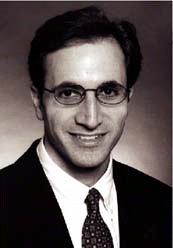Head and neck cancer patients suffer the most severe acute and long-term treatment-related toxicities of any cancer, with the exception of stem-cell transplant, she said. Acute toxicities, which are largely due to inflammation, include mucositis and sequelae of pain, dysphagia, and altered voice; radiation-induced dermatitis; and xerostomia and its sequelae. Late toxicities include fibrosis with associated decreased range of motion and swelling in the neck and shoulders (lymphedema). In addition, xerostomia leads to compromised oral health, dental decay, tooth extraction, and osteonecrosis.
Explore This Issue
September 2008Dealing with the toxicities of cancer treatments is as important [for patients] as treating the underlying cancer. We need to pay as much attention to toxicities as to the treatment itself. This study underscores the shift in direction toward paying closer attention to symptom control, Dr. Murphy stated.
Another take-away message from Dr. Pfister’s study is that acupuncture itself can be helpful in alleviating treatment-related toxicities. This study adds to a growing body of literature that would indicate that acupuncture is helpful in head and neck cancer patients, she said.
 It could be that the neuropathic pain associated with surgery and radiation would benefit from acupuncture, but it is less clear whether edema, fluid collection, and fibrosis after surgery and radiation would be helped by acupuncture.
It could be that the neuropathic pain associated with surgery and radiation would benefit from acupuncture, but it is less clear whether edema, fluid collection, and fibrosis after surgery and radiation would be helped by acupuncture.-Robert L. Ferris, MD, PhD
The mechanism by which acupuncture exerts its effects is not well understood, nor are the exact side effects for which it can be helpful. However, studies to address these issues are ongoing.
Definitive studies in a larger patient population are required in order to advocate acupuncture as standard of care for treatment-related symptoms in cancer patents. These studies could be used to support reimbursement, Dr. Murphy stated.
Success Story
In one sense, the fact that supportive care is becoming an important issue reflects success of therapies, with more patients with head and neck cancer being cured or living longer, said Robert L. Ferris, MD, PhD, who is Associate Professor and Vice-Chair for Clinical Operations, as well as Chief of the Division of Head and Neck Surgery in the Department of Otolaryngology and of Immunology at the University of Pittsburgh Cancer Institute.
Dr. Ferris praised Dr. Pfister for presenting a well-designed study and said that he believes that acupuncture could be helpful for a subset of patients, although it is not clear from this study which patients would derive benefit. It could be that the neuropathic pain associated with surgery and radiation would benefit from acupuncture, but it is less clear whether edema, fluid collection, and fibrosis after surgery and radiation would be helped by acupuncture, he commented.
Leave a Reply